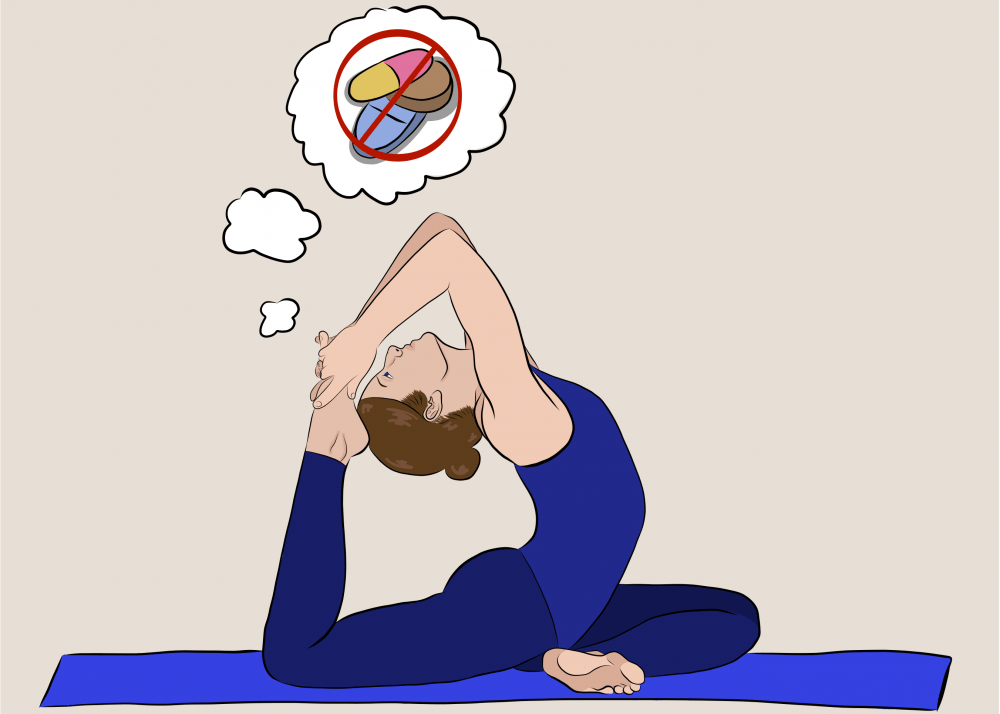In 2014, 21.5 million people aged 12 or older had a substance use disorder, including 17 million with an alcohol use disorder, 7.1 million with an illicit drug use disorder, and 2.6 million who had both, according to The Substance Abuse and Mental Health Services Administration.
Of those, 7.6 million people aged 18 to 25 received substance abuse treatment in the same year. This makes for many college-age people who have or are currently recovering from an addiction.
ASU’s Collegiate Recovery Program, Recovery Rising, works to meet the needs of students in recovery, providing connections among each other and resources.
Student coordinator for recovery and religious studies senior Nathaniel Harris says Recovery Rising works to accomplish two major points: to connect students who are in recovery with each other and to educate the ASU community as a whole, aiming to make it a recovery-friendly place.
Among the social opportunities hosted by Recovery Rising are Alcoholics Anonymous meetings, Narcotics Anonymous meetings and roundtable discussions to help those in recovery or to help educate allies about what recovery is.
There is one particular weekly event, however, that combines the spirituality of yoga and 12-Step Recovery: the Yoga 12-Step Recovery, also known as Y12SR.
Harris, who has been in recovery from methamphetamine for three and a half years, says being part of the group has given him the opportunity to share meaningful experiences and connections with different people. Among those connections, Harris helps host the AA and NA meetings but is also the instructor for the Yoga of 12-Step Recovery Classes on campus.
“(Yoga is) actually a pretty natural transition, because really what recovery is, is looking inside and making yourself a better person,” Harris says. “It’s very similar with yoga, looking inside and finding some mindfulness. Yoga is seen as a tool to help ground yourself and grow, and it’s the same thing with recovery.”
The 12-Step Program originated from Alcoholics Anonymous in 1938 and is now used by 74 percent of treatment centers, as reported by SAMHSA in 2013.
Y12SR began when founder Nikki Myers drew from her own experience in finding a more stable recovery journey, having tried both yoga and the 12-step programs separately and the somatic approach to healing offered through yoga.
According to the site, Y12SR combines “the ancient wisdom of yoga, the practical tools of 12-step programs, and the latest research on trauma healing and neurobiology … to address the physical, mental and spiritual disease of addiction.”
Harris says he went through an intensive training during a retreat in which he learned more about teaching yoga and combining the recovery elements with the practice. He became certified by Y12SR in the fall of 2016.
“All elements of yoga really do apply toward recovery,” Harris says. “There’s the mindfulness, just learning how to be and that’s it … learning how to have that peace and presence. They’re expressed in two different ways, so it’s just merging those two expressions into one.”
Harris says anyone is welcomed to attend the Y12SR classes, adding that attendees don’t necessarily have to be in recovery to be there. For example, he says the class can also be helpful for those who are facing or have faced hardships, those with anxiety, depression, eating disorders or abusive relationships.
“It’s a safe place for whoever wants to use it,” Harris says. “It’s all-inclusive.”
Local community member and friend of Harris, Charley Rowland, says attending Y12SR sessions helps her with her recurring depression. Though she doesn’t have a chemical dependency on any substance, as she put it, her struggles can be similar to the issues faced by those in recovery.
“We’re both working on something with ourselves in trying to push forward and not regress back into that negative behavior,” Rowland says. “Even though it’s not the same kind of behavior, it’s still negative. So, it does still help for depression.”
Rowland says the class has not only been physically impactful, but it also provides a safe place for her to center her mind, working as a de-stressor. Additionally, Rowland says the class has helped her recognize that one must be mentally balanced before being physically balanced, connecting both processes in a positive, helpful manner.
“Before the class, instead of focusing on ways to get better with my depression, I would just kind of ignore it and pretend it didn’t exist, and I tried to keep moving forward,” Rowland says. “This has helped. I would recommend more people with depression to go look at a recovery program because it’s been more helpful than I expected it to be.”
ASU Wellness and Health Promotions director Karen Moses says her and her team were able to create the opportunity for Harris to be trained in order to teach the class on campus.
Moses says that students in recovery have expressed a need to spend time together with others in recovery, searching for a community of others who understand not only what it is like to be in recovery, but what it is like to do so as a college student.
“If you’re going to be doing both of them, it’s nice to have people who understand what you’re going through,” Moses says.
Programs like Y12SR are some of the many ways they aim to meet that need.
“It’s something that we learned is happening in other communities … and we wanted to be able to offer it here,” Moses says. “It’s a great opportunity for people to come together and engage in yoga and also in a process toward recovery and support of recovery from addiction and this ally-ship. We just want to be available.”
The ASU Y12SR classes will be offered weekly on Friday mornings at the Sun Devil Fitness Center.
Reach the reporter at tespana@asu.edu or follow @thaliamespana on Twitter.
Like The State Press on Facebook and follow @statepress on Twitter.




